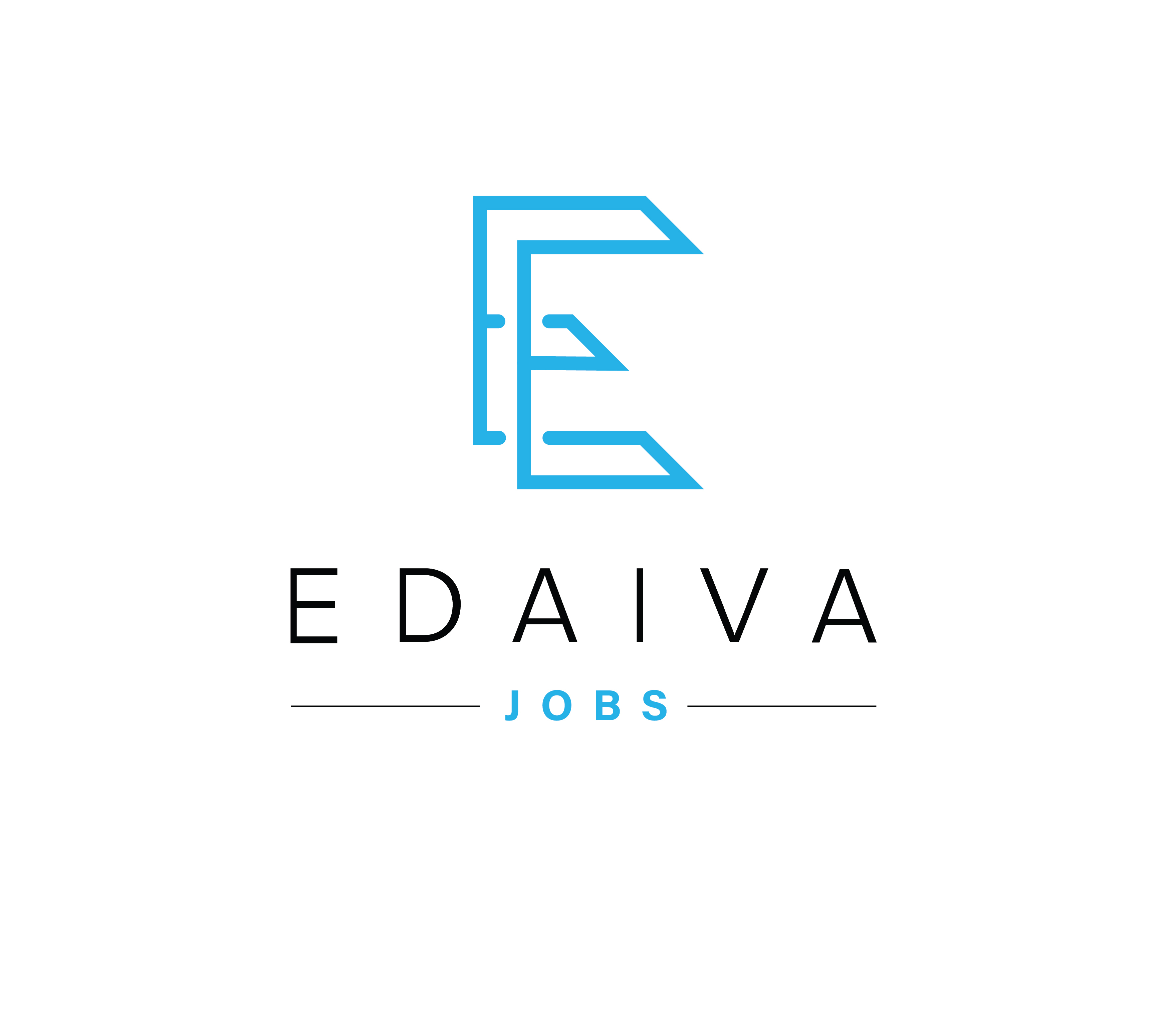BLOGS
6 Emerging Technologies that Could Change Your Business
By Team Edaiva
Last Updated : Aug 13, 2023

6 Emerging Technologies that Could Change Your Business and How to Prepare for Them
New and innovative technologies are constantly emerging that have the potential to transform businesses and entire industries. As a business leader, staying on top of these developments is key to leveraging them for your company's advantage. Professionals in all roles need to understand how their work may be impacted so they can take action to future-proof their careers.
Here are 6 major emerging technologies that could significantly disrupt business as usual, along with tips on how to get ready for them in your career:
1. Artificial Intelligence (AI)
AI encompasses computer systems that can perform tasks normally requiring human intelligence. Key AI applications for business include machine learning, natural language processing, robotics, computer vision and more. AI can enable businesses to automate processes, analyze data, improve customer experiences and develop innovative products and services.
For example, chatbots powered by natural language processing can serve as virtual customer service agents, while machine learning algorithms can provide personalized recommendations to shoppers. As a result, AI can make many processes more efficient, freeing up employees’ time for higher-value work.
To prepare for growth in AI:
Developers should learn in-demand programming languages like Python and acquire math skills to understand machine learning methods.
Business professionals should pursue training in AI fundamentals to identify applications in their work.
Studying how leading companies use AI can spark ideas on leveraging its capabilities.
Learning soft skills like creativity, collaboration and critical thinking will be essential to thrive alongside AI.
2. Augmented Reality (AR)/Virtual Reality (VR)
AR integrates digital information with the user's real environment in real-time, while VR completely immerses users in a simulated environment. AR/VR have many business uses, from redefining retail and marketing to transforming employee training and product design.
For example, IKEA Place allows customers to virtually place furniture in their own homes before buying. Car manufacturers use VR to speed up prototype development. Such applications of AR and VR allow for more immersive, efficient experiences.
To prepare for AR/VR advancements:
Developers should learn Unity or Unreal Engine to build AR/VR apps.
Marketers should look for innovative ways to enhance customer experiences with AR/VR.
All professionals should try AR/VR simulations as a user to understand the capabilities.
Soft skills like storytelling and empathy will be in-demand to craft engaging AR/VR experiences.
3. Blockchain
Blockchain is a decentralized, distributed digital ledger technology that enhances security, transparency and automation. It first emerged as the foundation for cryptocurrencies like Bitcoin, but blockchain has endless applications for transforming business operations.
Blockchain ledgers can securely track orders, manufacture history, shipping data and more using digital records. This can reduce errors and costs in areas like supply chain management. Blockchain also enables "smart contracts" that automatically execute agreements.
To prepare for blockchain's business impacts:
Developers should learn to build blockchain applications by studying languages like Solidity.
Professionals in finance, operations and analytics should learn the basics of cryptocurrency and blockchain to spot opportunities.
Studying how firms like Walmart use blockchain provides great examples to inspire new use cases.
Soft skills like systems thinking will be essential to identify blockchain applications.
4. Drones
Commercial drone usage has exploded in recent years across industries. Drones can provide aerial surveys, mapping, photography, inspection capabilities and more. Uses include monitoring infrastructure like pipelines, crops, or construction sites. Drones can also transport small goods efficiently over short distances.
As drones become more common in business, professionals should understand how they could be used in their industry. Marketers can harness drones for advertising purposes and exciting promotional videos. Engineers use drone scans for 3D models to aid their designs. The possibilities are vast.
To prepare for expanding drone use:
Engineers should consider obtaining a drone pilot license to operate drones professionally.
Marketing professionals should follow drone technology advancements to devise innovative promotions.
Developing skills in data analysis and geography information systems (GIS) will be useful as drone adoption grows.
Critical thinking skills can help identify new use cases and applications.
5. Robotics
Advances in robotics allow for growing automation across many industries. Robots excel at handling dangerous, precise, repetitive tasks more reliably than humans. Collaborative robots can work safely alongside people as helpers. Robotics will continue transforming warehouse logistics, manufacturing, agriculture, food service and more by taking over tedious, tiring work.
For example, factory robots improve efficiency and quality in production. Delivery robots transport goods in warehouses and beyond. Smart robots even have applications in cleaning, exoskeletons, surgery and more.
To prepare for robotics expansion:
Engineers should learn skills for programming and maintaining robots and automation systems.
Manufacturing pros should stay up to date on how robots transform processes to maximize benefits.
Developing critical thinking skills will be essential for identifying new applications for robotics.
Creativity and project management skills will be useful in planning and implementing robotic systems.
6. 3D Printing
Also called additive manufacturing, 3D printing builds objects layer-by-layer from digital 3D models. It enables on-demand, customized production that can benefit many industries. In construction, 3D printing can create modular homes and components. For manufacturing, 3D printing means faster prototyping, shorter supply chains and unique designs.
As 3D printing becomes more affordable and accessible, it has the potential to completely transform modern production. Supply chains and inventories may become obsolete as companies print what they need when they need it.
To prepare for 3D printing's rise:
Engineers must become experts in computer-aided design (CAD) and digital modeling for 3D printing.
Logistic professionals should study how 3D printing can disrupt supply chains to proactively make changes.
Creativity and innovation will be in-demand as customization and product personalization increases.
All careers can benefit from experience with 3D printing apps and software now to understand capabilities.
The key emerging technologies detailed here are poised to drive significant business disruption in the coming years. By understanding what’s coming and taking action early to build in-demand skills, current professionals and students can future-proof their careers. Gaining hands-on experience, pursuing ongoing training opportunities, and developing soft skills will help you adapt and stay competitive as these technologies transform the workplace.
Here are some frequently asked questions and tips for students and professionals on preparing for these emerging technologies:
FAQs
Q: Which emerging technology should I focus on for my career?
A: Look at your industry and identify where you expect major impacts first. For example, supply chain professionals should master blockchain, while customer service reps need AI skills.
Q: Do I need a technical degree to work with emerging tech?
A: Not necessarily. While developers will need specialized skills, professionals in all roles need a basic understanding to apply tech or work alongside it. Focus on building relevant soft skills too.
Q: How can students gain experience with these emerging technologies?
A: Look for online courses to build knowledge. Volunteer for projects at school implementing new tech. Pursue internships at innovative companies using things like drones or AI.
Q: With rapid change, how can I stay current?
A: Ongoing learning will be critical. Take regular training courses and obtain any new certifications in your field. Attend industry conferences and read newsletters tracking tech trends.
Q: What if I don't have access to expensive new tech to gain experience?
A: You can build skills with free or low-cost alternatives. For example, use free AI tools rather than advanced systems. Learn basic coding and try building chatbots. Leverage open-source projects where possible.
Q: How can professionals reskill mid-career for emerging tech?
A: Take advantage of continuing education, online courses, and professional training programs. Some companies even offer tuition assistance. Make time for self-study as well.
Q: What soft skills help me work with smart technology?
A: Emphasize creativity, collaboration, empathy, critical thinking, project management, and communication/storytelling skills. These help you complement tech capabilities.
Q: How important is it to specialize in one emerging technology?
A: While specializing helps, developing a broad understanding of how technologies intersect is hugely valuable to spot opportunities. Aim for T-shaped skills.
Q: If my company is slow to adopt new tech, should I move to a more innovative company?
A: That's an option. But you can also spearhead adoption and become the resident expert. Either path works as long as you keep building relevant skills.
Tips
Identify specific skills related to technologies impacting your role and actively work to develop them. Learn by doing with hands-on projects.
Get comfortable working with data. Emerging tech runs on data, so improving data literacy skills will be invaluable.
Develop flexibility, adaptability and creativity. Emerging tech means constant change, requiring professionals who can adjust on the fly.
Look for opportunities to implement pilots or tests for new technologies at your company. This experience lets you shape adoption and become an expert.
Collaborate effectively. Working seamlessly alongside smart technology and collaborating across departments will require strong teamwork abilities.
Focus on improving the soft skills the machines can’t master – communication, empathy, creativity, relationship building and leadership.
By staying informed, developing in-demand skills, and embracing a growth mindset, any professional or student can prepare for the changes ahead. Emerging technologies bring vast opportunities for those ready to take them on.
Recommended Courses
Here are some recommendations for courses students can take to gain skills with emerging technologies:
Introduction to Artificial Intelligence - Online courses from edX, Coursera and Udemy teach the fundamentals of AI and machine learning.
Blockchain Technologies - Try classes on Coursera or Udacity to understand blockchain and explore building applications.
Robotics - Robotics courses offer overviews and many teach hands-on programming skills. MIT OpenCourseWare has a popular intro robotics course.
Drone Pilot Ground School - Udemy and other platforms offer courses to prep for the FAA drone pilot certification exam.
Augmented Reality Development - Unity and other providers offer augmented reality and virtual reality development courses.
3D Printing for Beginners - EdX, Skillshare and others have introductory 3D printing classes using software like Tinkercad.
Python Programming - Python is a top language for AI, machine learning and more. Codecademy has great hands-on Python courses.
CAD and Digital Modeling - Take CAD classes to gain 3D modeling skills for applications like 3D printing. Autodesk offers CAD courses.
Data Literacy and Analysis - Improve data skills with inexpensive online data analysis, data visualization, and Excel courses.
Creativity and Innovation - Take free creativity training or design thinking courses from platforms like IDEO U and Acumen.
The key is to pick online courses teaching concepts and skills directly relevant to your interests and career goals related to emerging technologies. Look for robust courses that provide plenty of hands-on projects and learning activities.
